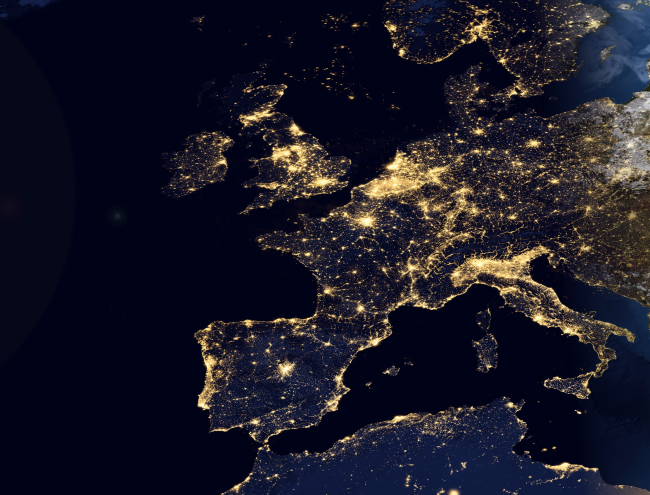Will there ever be a European Gas and Electricity Market ?

A year ago, I would have responded to this question rather positively. Nowadays, I am not so sure. My relative optimism before was based on the replacement of a group of monopoly-holding (at least regionally) national operators, by an oligopoly of operators with a sizeable proportion of their activity outside of their countries of origin. These included EON, EdF, RWE, ENEL, GDFSuez, IBERDROLA, VATTENFALL and others.
However, the trend has recently reversed: EON has sold its British, Italian and Central European distribution activities. EdF has ceased its distribution in Great Britain with the sale of British Energy, and more importantly in Germany has sold EnBW.
Why this reversal? The big groups have noticed that the states would not relinquish their roles in choosing production investments; that the public authorities, either national, regional or both, were persisting in intervening with sale prices; and that the prospects for profitable distribution were unfavourable. Moreover, decisions regarding intra-European networks take too long. And there were often inconsistencies in energy policies both within and between countries.
What to do from here? In this necessarily short editorial, I will sketch an adaptation of the EU energy policy which would be beneficial:
• Reinsert at the center of the EU strategy the objective of competitiveness:
o Admit that two national production models will exist side by side: one without nuclear power or preparing to cease nuclear activity, the other with nuclear power and having the aim of obtaining a quasi-renewable source with Generation IV.
o Treat all electricity equally, regardless of its source, in terms of transport, distribution and international networks.
o Enhance the powers of European transport and networking organisations with the aim of optimising the total cost of electricity provision (necessarily taking into account the irregularity of certain renewable sources).
o Prohibit governments from exerting any influence over wholesale or industrial markets and work progressively towards a total liberalisation of domestic prices.
o Efficiently manage the carbon market in the sectors covered by the EU Emission Trading Scheme (with an horizon longer than 2020 and price floors) and look into introducing a tax for other emissions.
I will add that in the 3*20, the key objective seems to be the reduction of greenhouse gas emissions on European soil. To include with this the savings caused by CDMs is a dangerous hypocrisy which will lead to the attainment of illusory objectives which will have been stripped of all sense.
Related centers and programs
Discover our other research centers and programsFind out more
Discover all our analysesBrazil One Year Away from the October 2026 General Elections
Brazil’s general elections will be held on October 4, 2026, to elect the president, vice-president, members of the National Congress, governors, deputy governors and state legislative assemblies. For the presidential and gubernatorial elections, a second round will be held on October 25 if no candidate obtains a majority of the votes in the first round.
COP30: An Inflection Point for Climate Action and Governance
The 30th Conference of the Parties (COP30), opening in Belém, Brazil, on November 10th 2025, convenes at a perilous moment.
The Strategic Dimension of Skills in the Clean Industrial Deal
In the competitiveness and energy transition battles, the European Union (EU) must master a determinant factor: skills.
The Energy Transition Faces Geopolitical Challenges. How Can Ideological Divides Be Overcome?
President Trump’s positions and policies, combined with record coal consumption and booming global electricity demand, geo-economic confrontation, and widespread concerns about energy security, are changing the game when it comes to understanding realistic decarbonization trajectories. The war in Europe is intensifying competition between defense and transition budgets. This is also the case elsewhere in the world.














